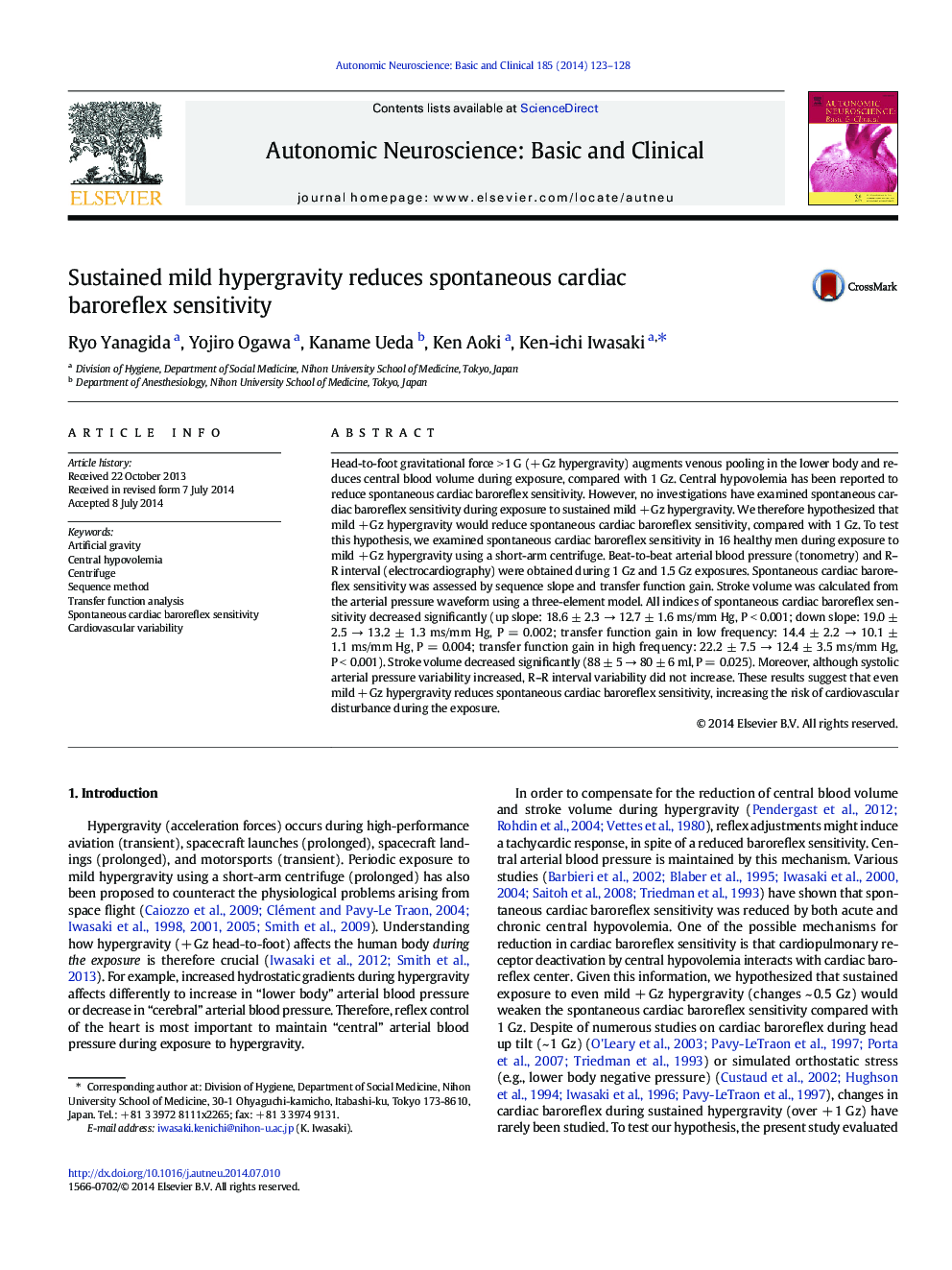| کد مقاله | کد نشریه | سال انتشار | مقاله انگلیسی | نسخه تمام متن |
|---|---|---|---|---|
| 6004009 | 1579530 | 2014 | 6 صفحه PDF | دانلود رایگان |

- We hypothesized that mild +Â Gz hypergravity reduces cardiac baroreflex sensitivity.
- We studied 16 healthy men during +Â 1.5Â Gz hypergravity using a short-arm centrifuge.
- Cardiac baroreflex sensitivity was assessed by sequence & transfer function gain.
- All indices of spontaneous cardiac baroreflex sensitivity decreased significantly.
- Even mild +Â Gz hypergravity would reduce spontaneous cardiac baroreflex sensitivity.
Head-to-foot gravitational force > 1 G (+ Gz hypergravity) augments venous pooling in the lower body and reduces central blood volume during exposure, compared with 1 Gz. Central hypovolemia has been reported to reduce spontaneous cardiac baroreflex sensitivity. However, no investigations have examined spontaneous cardiac baroreflex sensitivity during exposure to sustained mild + Gz hypergravity. We therefore hypothesized that mild + Gz hypergravity would reduce spontaneous cardiac baroreflex sensitivity, compared with 1 Gz. To test this hypothesis, we examined spontaneous cardiac baroreflex sensitivity in 16 healthy men during exposure to mild + Gz hypergravity using a short-arm centrifuge. Beat-to-beat arterial blood pressure (tonometry) and R-R interval (electrocardiography) were obtained during 1 Gz and 1.5 Gz exposures. Spontaneous cardiac baroreflex sensitivity was assessed by sequence slope and transfer function gain. Stroke volume was calculated from the arterial pressure waveform using a three-element model. All indices of spontaneous cardiac baroreflex sensitivity decreased significantly (up slope: 18.6 ± 2.3 â 12.7 ± 1.6 ms/mm Hg, P < 0.001; down slope: 19.0 ± 2.5 â 13.2 ± 1.3 ms/mm Hg, P = 0.002; transfer function gain in low frequency: 14.4 ± 2.2 â 10.1 ± 1.1 ms/mm Hg, P = 0.004; transfer function gain in high frequency: 22.2 ± 7.5 â 12.4 ± 3.5 ms/mm Hg, P < 0.001). Stroke volume decreased significantly (88 ± 5 â 80 ± 6 ml, P = 0.025). Moreover, although systolic arterial pressure variability increased, R-R interval variability did not increase. These results suggest that even mild + Gz hypergravity reduces spontaneous cardiac baroreflex sensitivity, increasing the risk of cardiovascular disturbance during the exposure.
Journal: Autonomic Neuroscience - Volume 185, October 2014, Pages 123-128